Humanities & Social Sciences
Mak initiates the “Zadok Adolu- Otojoka Music Excellence Award”
Published
4 years agoon
By
Jane Anyango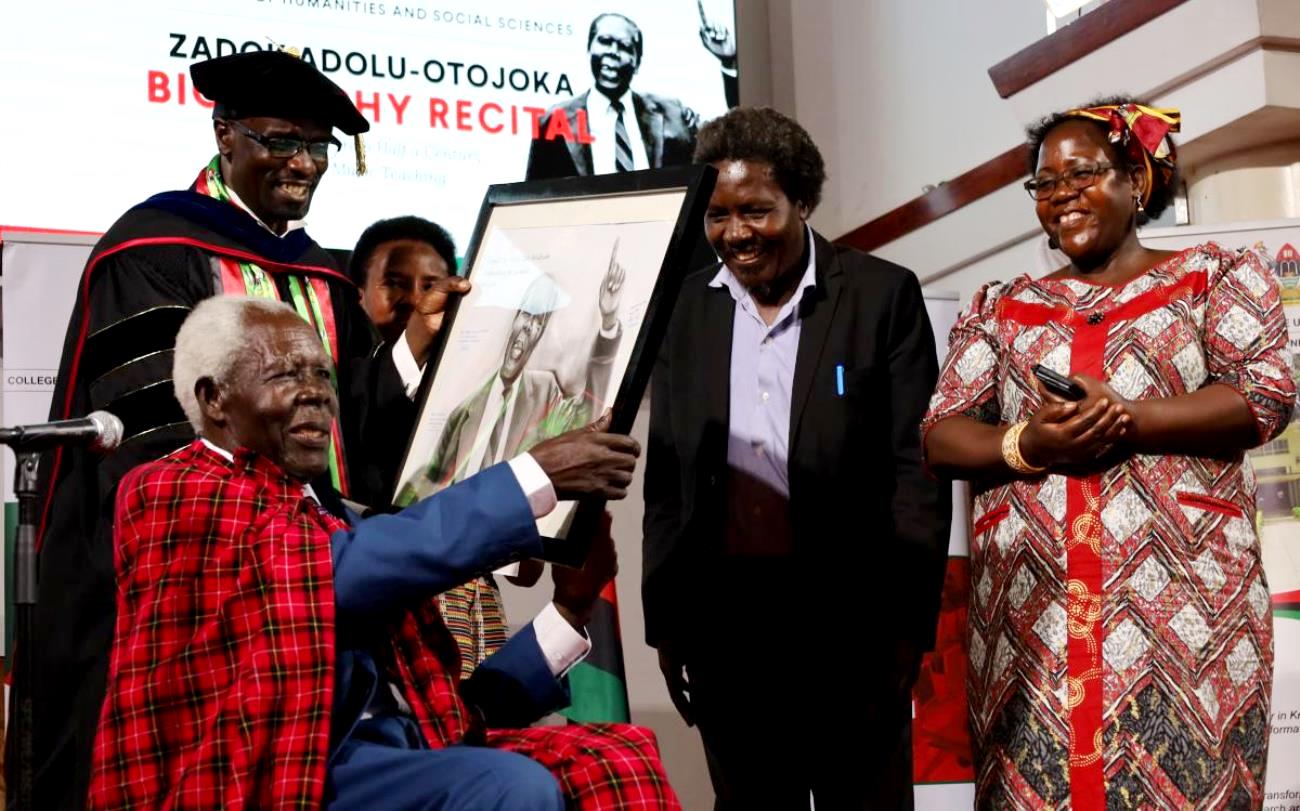
Makerere University College of Humanities and Social Sciences (CHUSS) through the Department of Performing Arts and Film has initiated the establishment of “Zadok Adolu- Otojoka Music Excellence Award”. This award will be given to the best performing students of music education and performance.
The initiative was disclosed by Dr. Milton wabyona while presenting a keynote and biography recital in honor of Prof. (Emeritus) Zadok Adolu- Otojoka as part of the activities to celebrate the 100 years of Makerere University’s service to humanity.
Over 600 thousand shillings was collected in thanksgiving as seed to kick start the, “Zadok Adolu- Otojoka Music Excellence Award”.
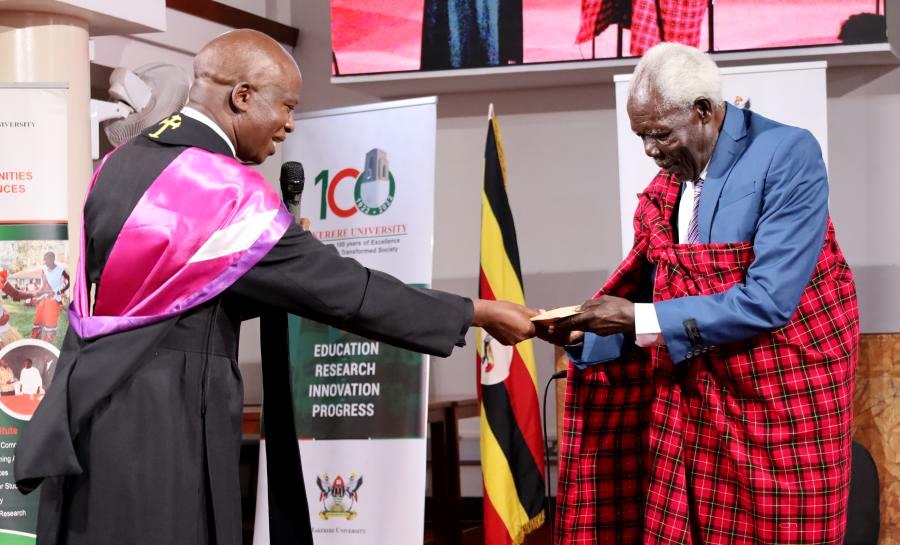
The function held on 31st March 2022 at St. Francis Chapel was graced by the Vice Chancellor represented by the Principal CHUSS Associate Prof. Josephine Ahikire, the Chaplain St Francis Chapel Rev. Onesmus Asiimwe, Makerere University staff and students, distinguished musicians and teachers, the alumni and the Zadok Adolu- Otojoka’s family from Serere district.
Adolu-Otojoka was honored for his invaluable and monumental contribution to academia through musical arts presentations exploring through the 52-years of his professional music teaching with a view of learning and understanding the trends, as well as predicting the future of the music education discipline in Uganda.
Zadok Adolu-Otojoka is one of the highly celebrated icons of music education and professional music performance in Uganda and East Africa. Educated in Uganda and in the United States, Adolu-Otojoka has taught music at all levels of the formal education pyramid in East Africa, with the most distinguished acclaim.
At the peak of his teaching career in Uganda, he served as Head of Department of Music, Dance and Drama (now Performing Arts and Film) at Makerere University in the mid- to late-1990s. At Makerere, he was particularly famous for his charismatic conducting of the university anthem and the mesmerizing leadership of the academic procession during graduation ceremonies.
Adolu-Otojoka is also revered for his extra-ordinary talent in both Western and African musical art forms and passion for the music profession, in which he excelled and mentored generations.
The biography recital was based on the article: “Zadok Adolu-Otojoka and Music Education in Uganda: An Oral History” by Milton Wabyona, published on January 27, 2022, in the American Journal of Historical Research in Music Education. The purpose of this recital was to highlight some of the senior educator’s experiences, approaches and recommendations presented in his oral history.
The recital repertoire focused on some of Adolu-Otojoka’s favorite works, particularly, those highlighted in his oral history as well as recitations of select sections of his life story. The performance forces included some of Adolu-Otojoka’s former students, acquaintances, professional musicians and music faculty alongside current music students from Makerere University.
In his keynote address, Dr. Milton Wabyona who was the Author and Conductor said “Adolu-Otojoka’s recital provides valuable inspiration for the young music education discipline in Uganda as well as insights regarding multicultural music education perspectives.
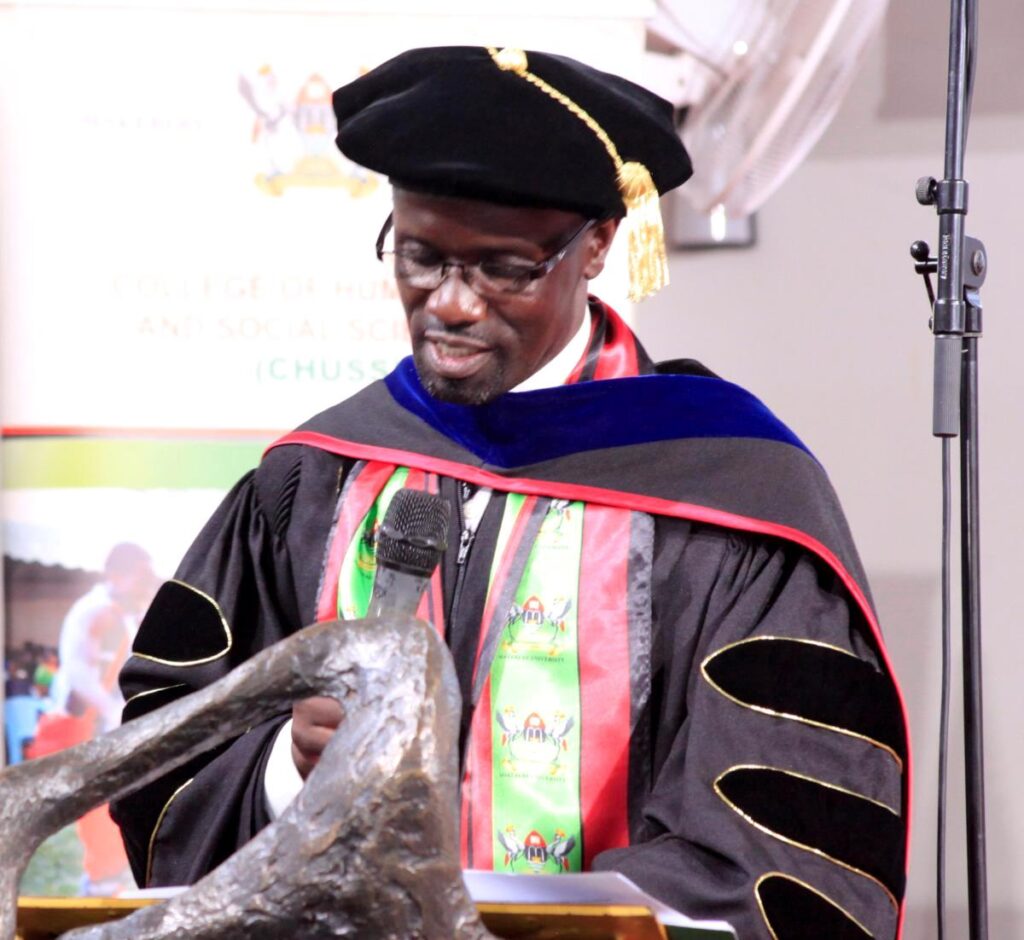
“Through such initiatives, we hope to ensure that legacies of exemplary individuals are kept active, but most importantly the ideals and values they lived for can continue to shape life in our society,’ Dr. Wabyona said thanking the Principal CHUSS for the resolute support for the recital and for sanctioning to honor Prof. Zadok Adolu- Otojoka as part of the activities to mark Makerere@100 years.
Citing the words of the American writer, William Arthur Ward, Dr. Wabyona said, the contents, character and intentions in the recital are all inspired by the life of Zadok Adolu –Otojoka, the music teacher and performer, to help the academia ponder upon the music profession.
“American writer, William Arthur Ward wrote: The mediocre teacher tells. The good teacher explains. The superior teacher inspires”. It is my hope that through this recital, we’ll all have a fair ground base to classify the man we are celebrating here today, but also reflect upon our professional careers as teachers”. Dr. Wabyona stated.
Zadok Adolu- Otojoka was described as prolific in all the three disciplines of music dance and drama. As a dancer, Adolu was the artistic director of the national dance troupe, the Heartbeat of Africa of the 1970’s which produced the likes of Stephen Rwangyezi of Ndere troupe. He also featured in several stage dramas alongside some Uganda’s celebrated actress Prof. Rose Mbowa and acted in television series, “Teeth and Tears” directed by Prof. Patrick Mangeni, the current Dean School of Liberal and Performing Arts.
As teacher, Adolu- Otojoka was praised as one who always set his students for success irrespective of their abilities or previous education or other background and only focused on potential, a virtue that inspired remarkable levels of confidence among his students as they felt secure under him.
Although he was extremely talented and one of the most accomplished professional, he was applauded for having remained an incredibly humble human being who only used his advantages to inspire, demonstrate and facilitate learning for his students.
His willingness to support students at every possible opportunity was strongly mentioned by those who studied under him as a highly inspiration approach that worked for him. Adolu was described as one who always taught, demonstrated, mentored and supported students far and beyond the academic obligations. He was also said to be amazingly humorous and shared lot of stories especially of his personal experiences.
Regarding the future of education in Uganda, Adolu-Otojoka recommends a vibrant and deliberate music performance culture at all levels involving both students and teachers in Uganda’s education curriculum.
He underscores the importance of methodological focus on music teacher preparation systems as what is needed to meaningfully transform Uganda’s music education on reason that, “the quality of an education system cannot exceed the quality of its teachers.
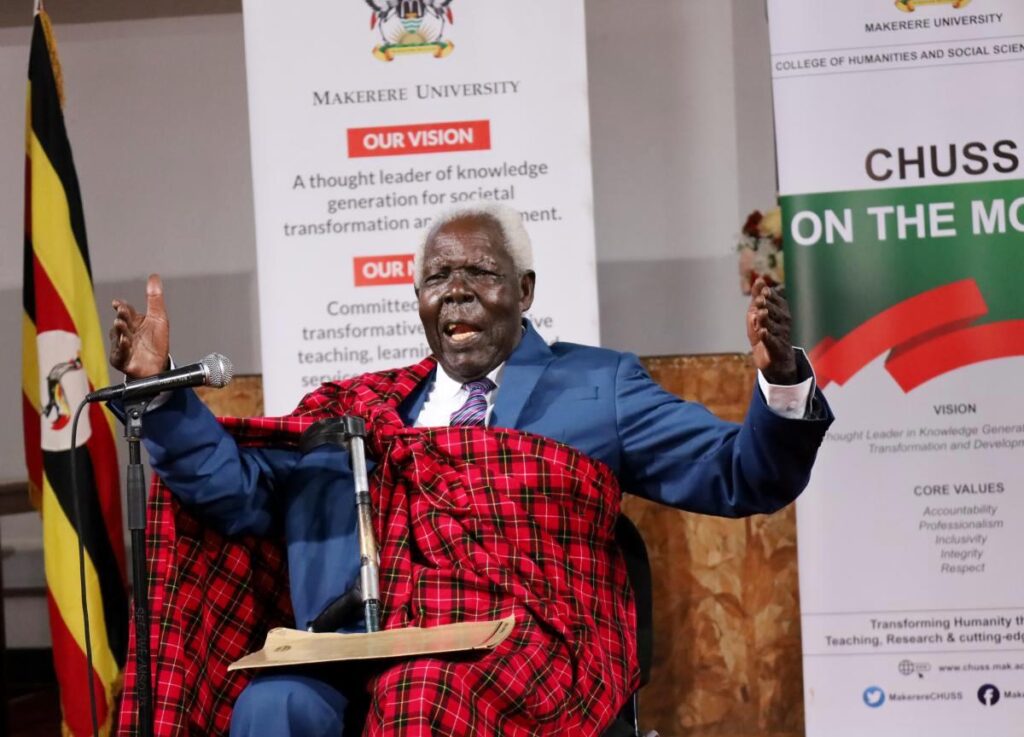
Adolu paid tribute to individuals and groups that helped him grow up and serve the way he did including students, maternal uncles who were composers, missionaries and friends who encouraged him, the culture and youth ministry of the time including cows and goats he herded while reading notations in the bush.
Adolu paid special gratitude to his immediate family especially for standing the test of time, remaining home and toiling while away on 5year study in the US.
“I will never forget the class of 1999 of Wabyona and others who are overseas. This was the biggest class I had in teaching in music and they were the best. I thank Wabyona and the whole group who felt it fit to give to me an honor. I will not forget the school, department, music, dance and drama.
I have seen something quite different and creative and of a high class. Whatever has happened, whoever has participated, thank you for giving me this honor while I am living. I am very humbled.
There is nothing you can do if you don’t become keen about what you do. Young men and women, if you are aspiring to do something, do it with one heart and labour to make a difference and you will make it”, Adolu appreciated and advised.
Adolu also extended his appreciation to Makerere University management and the current Vice chancellor for allowing and facilitating the function to happen
Demand for an honorary doctorate for Zadok Adolu-Otojoka
The former Secretary General UNESCO, Uganda National Commission Augustine Omare Okurut tabled a special request to Makerere University to bestow an Honorary Doctorate upon Prof. Zadok Adolu-Otojoka for his distinguished services as a great man whom God has given chance to serve.
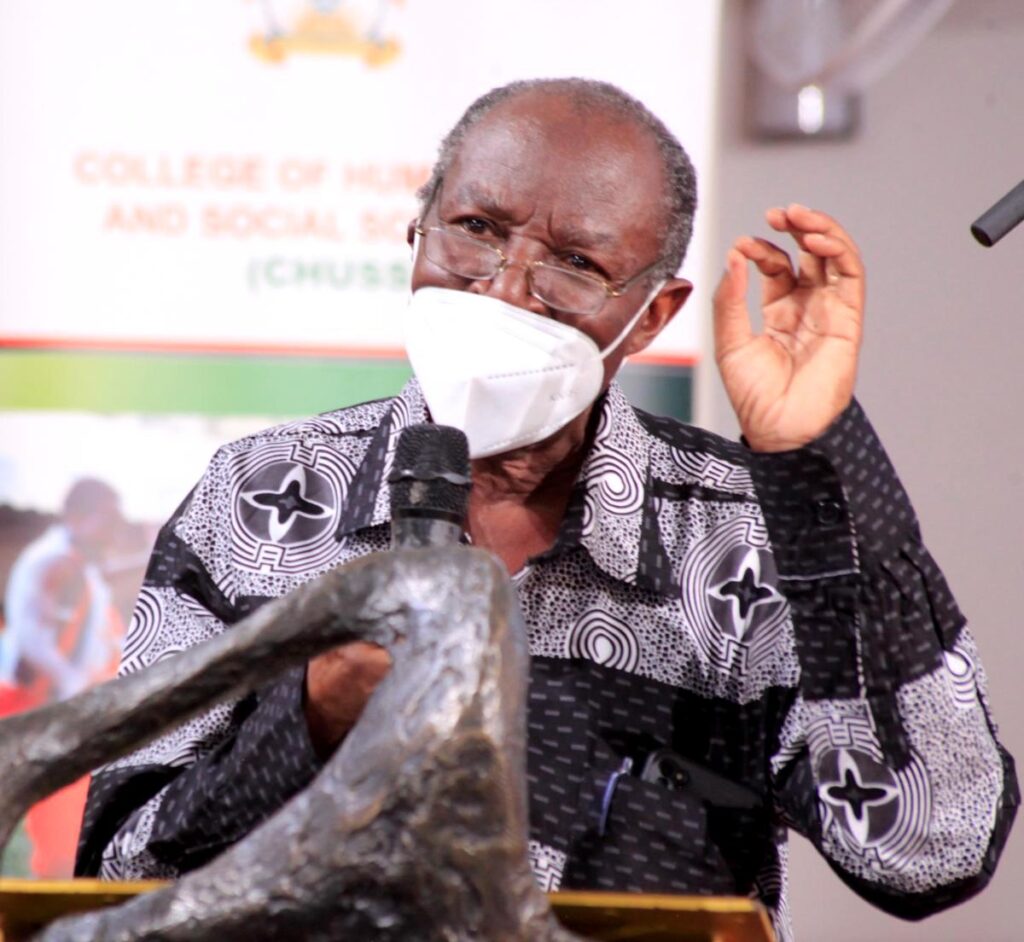
Mr. Okurut recounted how together with Adolu performed during the 21st anniversary celebrations for the national theatre in 1980, the national competition in the promulgation of the 1995 constitution and in the formation of the anthem for Busitema university besides his administrative service and tertiary teaching.
Okurut said, Adolu was on high demand in the field of culture administration and held multiple positions simultaneously, He reported that in 1971 Adolu was appointed as culture officer in the Ministry of Culture and Community Development and grew in ranks to Principal Culture Officer ending his portfolio as Deputy Commissioner for culture in 1989.
“Even in this capacity, Adolu-Otojoka cherished opportunities to participate in musical arts performances and their related education perspectives”.
Within three years of his appointment to the Culture office in Uganda, Adolu-Otojoka was appointed as in charge of Culture affairs for the East African Community in Nairobi from 1974 to 1977. This regional assignment according to Okurut included serving as coordinator and artistic advisor for East Africa FESTAC Festival of Arts and culture that was held in Nigeria in 1977- a position that provided him excellent continental platform to showcase his art performance credentials.
Mak to initiate an online Doctoral Professorship for Zadok Adolu-Otojoka
Speaking on behalf of the Vice Chancellor, the Principal CHUSS Associate Prof. Josephine Ahikire described the day’s event as great saying, the Dean School Liberal and Performing Arts will handle the request to bestow an Honorary Doctorate upon the celebrated music teacher, performer and mentor.
“Today was really a great day for Makerere as we celebrate 100 years of building for the future and transforming lives. We honor Prof. Zadok Adolu-Otojoka.
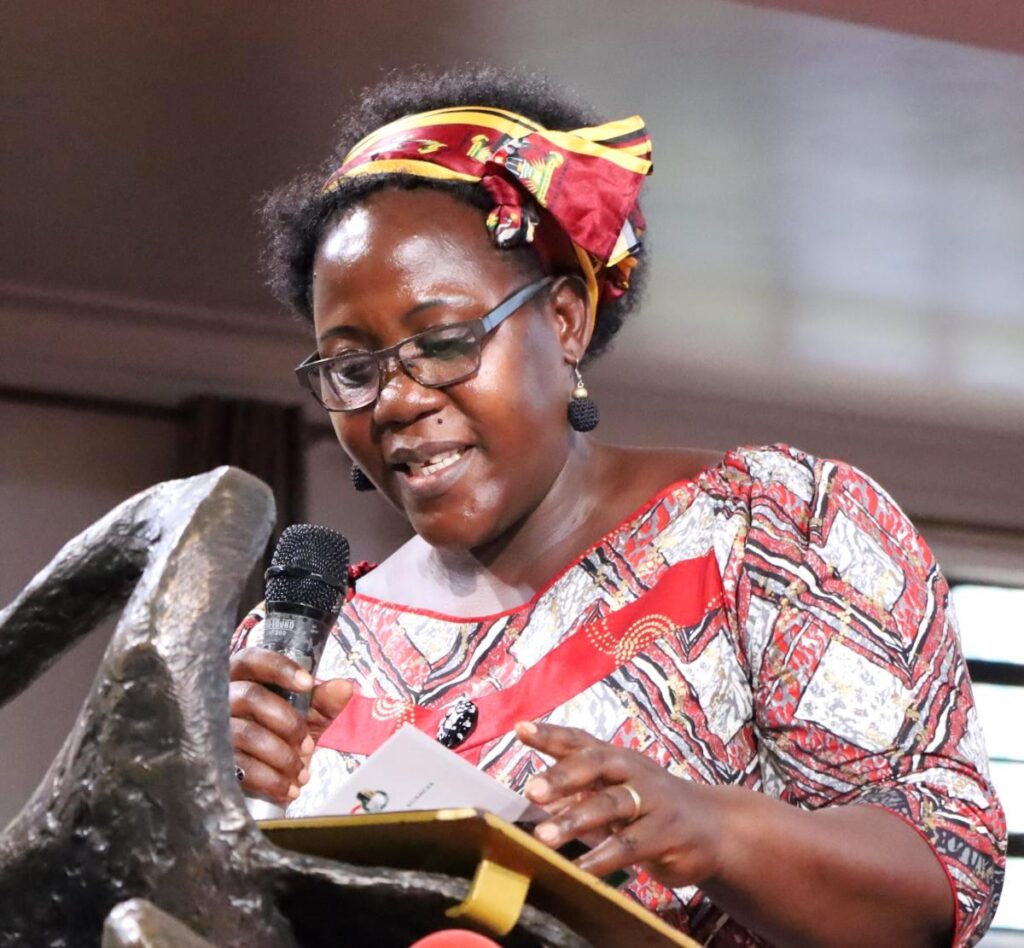
Prof. Ahikire congratulated Dr. Milton Wabyona for successfully initiating and implementing the idea of honouring Prof. Adolu-Otojoka as part of Mak @100.
“It is a pleasure to see our students perform this high level and wow!. Our teachers, the way you are modelling our students is commendable. As Principal CHUSS, CHUSS is the soul and PAF is the spirit.” She added.
She also hailed the family of Prof. Zadok Adolu-Otojoka especially the women for standing by him throughout his musical career, noting that if the family arena is shaken, the person is shaken.
You may like
-


Celebrating Academic Excellence: CoBAMS Presents 975 Graduands at Mak 76th Graduation Ceremony
-


Mak 76th Graduation Ceremony: CoNAS Presents 16 PhDs & Best Performing Male Student in the Sciences
-


Medical graduates urged to uphold Ethical values
-


CAES Presents Overall Best Performing Student in the Sciences & a Record 28 PhDs at the 76th Graduation Ceremony
-


Over 9,200 to graduate at Makerere University’s 76th Graduation
-
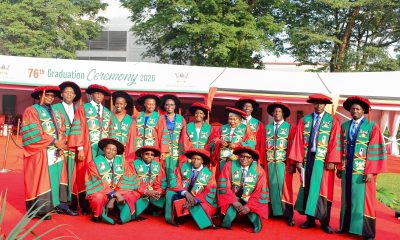

Mak 76th Graduation Ceremony: CEES Celebrates Academic Excellence, with 27 PhDs
Humanities & Social Sciences
Meet Najjuka Whitney, The Girl Who Missed Law and Found Her Voice
Published
6 days agoon
February 23, 2026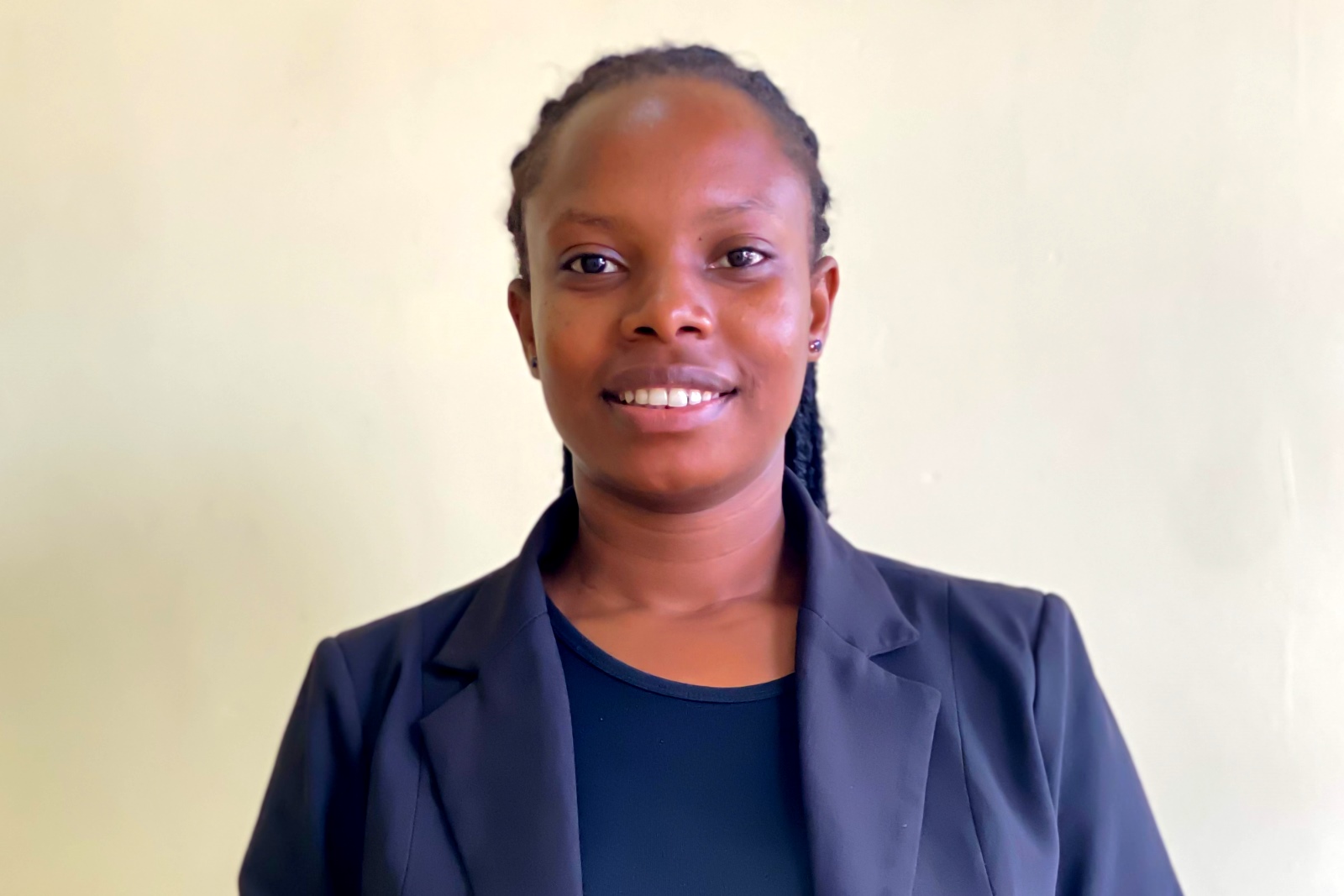
On the morning of Friday, February 27, when the academic procession winds its way across Makerere University’s Freedom Square for the last day of the 76th Graduation Ceremony, Whitney Najjuka will walk into history with a number beside her name: 4.46.
At Makerere, that number means First Class Honours. It means the Vice Chancellor’s List. It means she graduates as the only First-Class student in Journalism and Communication this year. But numbers, as Whitney has learned, rarely tell the full story.
Born on March 27, 2002, in Nabbingo, Kyengera Town Council, to Margaret Kusemererwa and Fred Kasirye, dreamt she would do Law, one of the disciplines, prestigious, almost inevitable next steps for a student who had excelled in secondary school. She had done everything correctly. Studied hard. Scored well. Followed the script.
But Makerere University had other plans. She missed the pre-entry mark, but found her name under Journalism and Communication, another prestigious course offered by the Journalism and Communication Department at Makerere University.
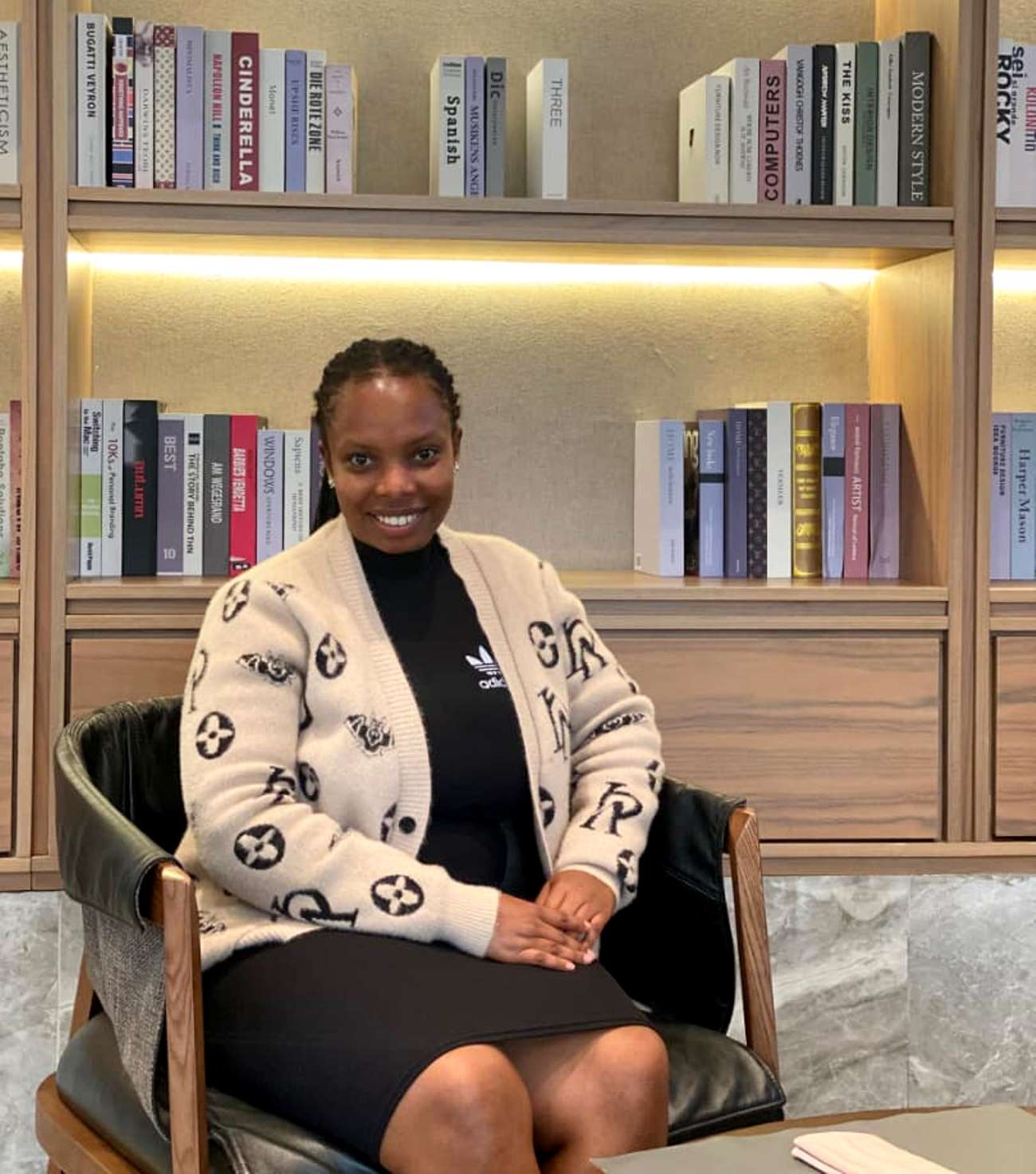
Najjuka began her academic journey at Muto Primary School in Buwama, earning 8 aggregates in the Primary Leaving Examination, a performance that positioned her strongly for secondary school.
She would later join St. Lucia Hill School, Namagoma, where she earned 20 aggregates at O-Level and 17 points in History, Luganda, and Divinity at A-Level.
Missing her dream course, Law, felt at first, like a detour. But Whitney was encouraged by Sanyu Christopher, her uncle, and she settled for a government-sponsored slot in the Bachelor of Journalism and Communication at Makerere, which she had applied for before.
She entered uncertain. But she graduates transformed.
The Pivot That Became a Purpose
Whitney speaks of her early university days with candor. She did not arrive at the Department of Journalism and Communication with a burning childhood ambition to be a journalist, but because another door had closed.
Then, Social and Behavior Change Communication happened. Applied Strategic Communication happened. She began to see media not as headlines and microphones, but as architecture, shaping how societies think, argue, and act.
The turning point came in her third year. The Female Journalist Foundation published her story on Sexual Gender-Based Violence (SGBV) and its emotional toll on survivors. What startled her was not its publication but the reaction. Comments flooded in. Debates ignited, especially about the role of men in combating GBV.
“I realized media doesn’t just report,” she says. “It frames how society views a crisis.”
Her voice, once tentative, had entered a national conversation.
The Discipline Behind 4.46
At Makerere University, a First Class CGPA is not built on brilliance alone but on ritual.
Whitney’s ritual began with showing up, on time, every time. She treated lectures as appointments with her future self. She refused to confine her learning to the syllabus. While attending workshops at the Aga Khan Graduate School of Media and Communication and obtaining external certifications, she sought and was open to mentorship through the Public Relations Association of Uganda (PRAU).
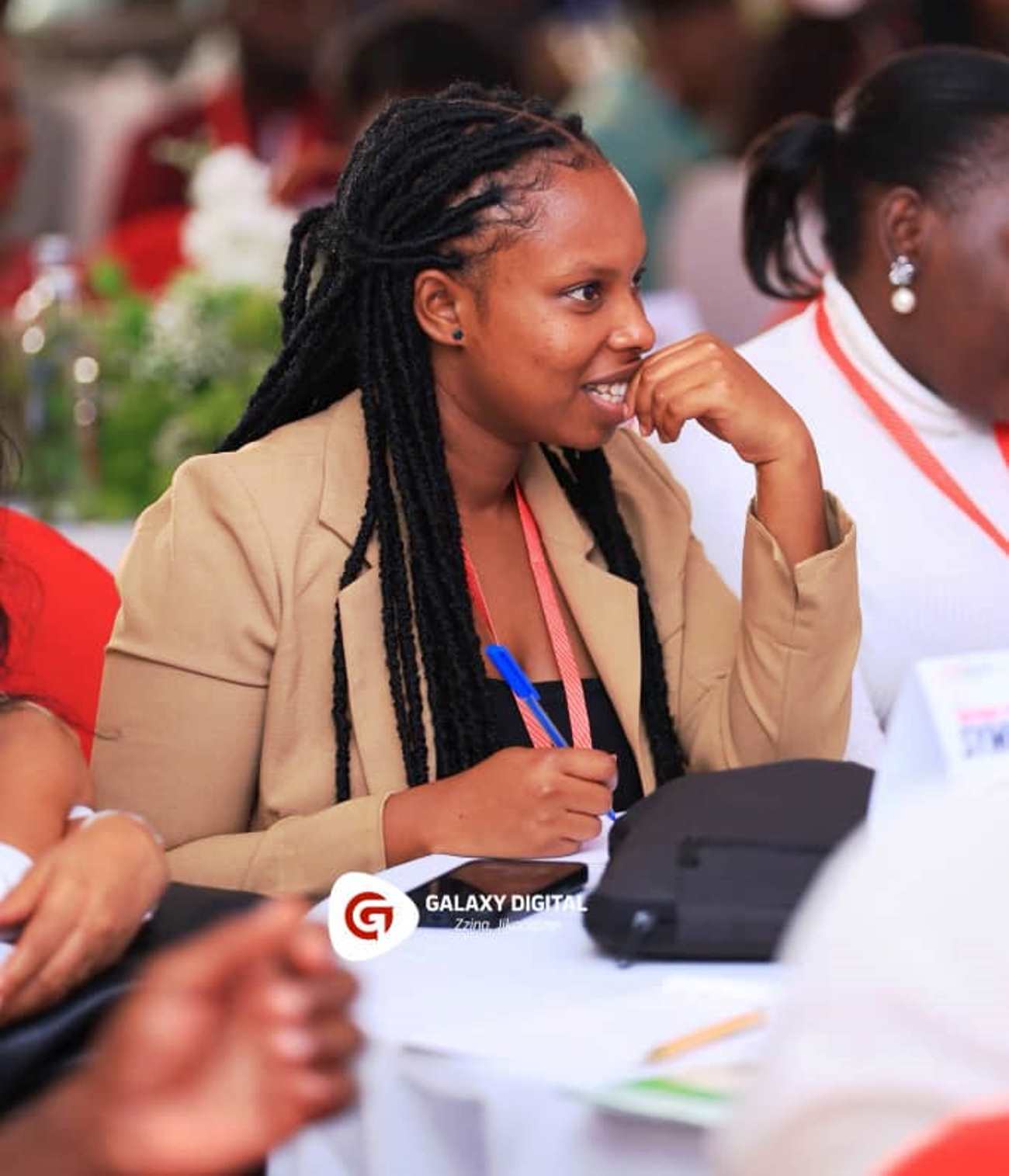
She wanted theory anchored in practice. And then there was the commute.
From Nabbingo, a hill in Wakiso District, some 18.6 km to Kampala, where the Makerere Main campus is situated, and back, nearly 20 hours a week dissolved into Kampala traffic. Two-hour journeys before 8:00 a.m. lectures. Dust. Noise. Headaches. She learned to manage energy the way others manage time. Fatigue became a tutor in resilience.
“I had to be intentional with every remaining hour,” she says. “Excuses were not an option.”
Learning to Practice Communication
If classrooms taught her analysis, presentations taught her courage. Pitching projects, defending research, and standing before peers quick to critique forced her to think on her feet. She was no longer simply studying communication; she was practicing it.
In 2024, the AGMES Fellowship at the Aga Khan Graduate School of Media and Communication pushed her further. She received funding to produce a capstone project on the mental impact of gender-based violence on survivors. She identified sources, conducted interviews, handled trauma with care, and worked with professional editors.
The Communication, she learned, is logistics and ethics as much as eloquence.
The Future She Sees
Whitney is optimistic about Uganda’s media landscape. The digital shift, she believes, has democratized influence. Young communicators are no longer confined to legacy newsrooms or offices.
Yet she sees a gap in the absence of structured research on sustainable, ethical, profitable independent media ventures in Uganda. Her ambition is not only to practice communication, but to study it. To produce data-backed frameworks that help young Ugandans transition from graduates to media entrepreneurs.
She wants to make the impact scalable.
What Remains
As the only First-Class graduate in her cohort, she is careful not to mythologize herself. “Success isn’t brilliance alone,” she says. “It’s a daily commitment when nobody is watching.”
Even before graduation, Whitney had stepped into the industry through a mentorship internship at Capital One Group (COG EA Ltd), a strategic marketing communications agency operating across East Africa.
At Capital One Group, we spoke to Paul Mwirigi Muriungi, the Managing Director and Head of Strategy, who spoke of Najjuka as a progressive and intentional young professional who approaches her work with curiosity, maturity, and responsibility.
“Her attitude is exemplary. She is teachable, receptive to feedback, and eager to grow. While technical skills can be taught, character, work ethic, and mindset determine long-term success, qualities that Whitney consistently demonstrates. Given her academic excellence and professional application, we believe she has a bright future both at Capital One Group and within the wider communications industry. She represents the kind of talent the profession needs: thoughtful, adaptable, and committed to excellence.
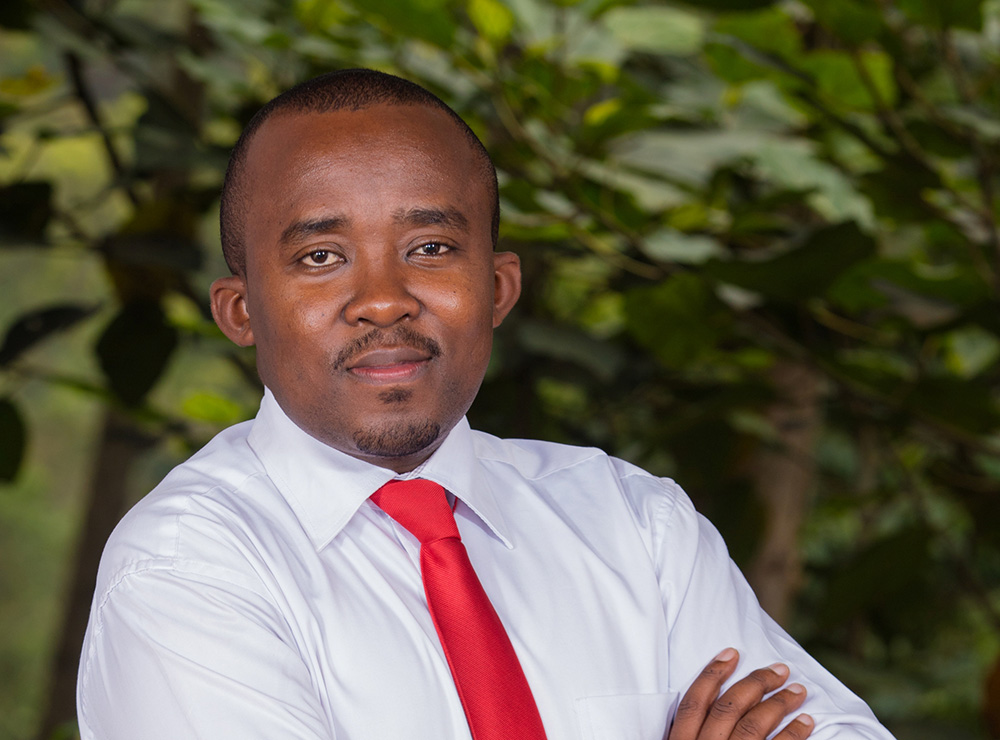
“We look forward to seeing her next chapter unfold,” says Mwirigi.
Najjuka’s gaze extends beyond her own trajectory. She speaks of what the Department could become. Furnished and equipped with industry-standard equipment, newsroom simulations, and deeper investment in data journalism as prayers. Her excellence is not self-congratulatory, but it is forward-looking.
“The University should support the Department to procure industry-standard equipment. Access to high-quality cameras, sound booths, and updated editing software like Adobe Creative Suite is critical to our learning environment,” she says.
Adding that, “We need a newsroom simulation, a physical or digital space where students work under real-time deadlines to produce content for the public. That would prepare us for industry and even strengthen the University’s own media platforms.”
In an era defined by metrics, algorithms, and digital traceability, data journalism is no longer a niche skill but a sine qua non of credible reporting. “There should also be more focus on data journalism and search engine optimization. These are no longer optional skills. Students would benefit immensely from stronger training in these areas.”
Dr. Aisha Nakiwala, the Head, Department of Journalism and Communication, says the faculty are very proud that she is graduating with a First Class—the only one in this year’s cohort.
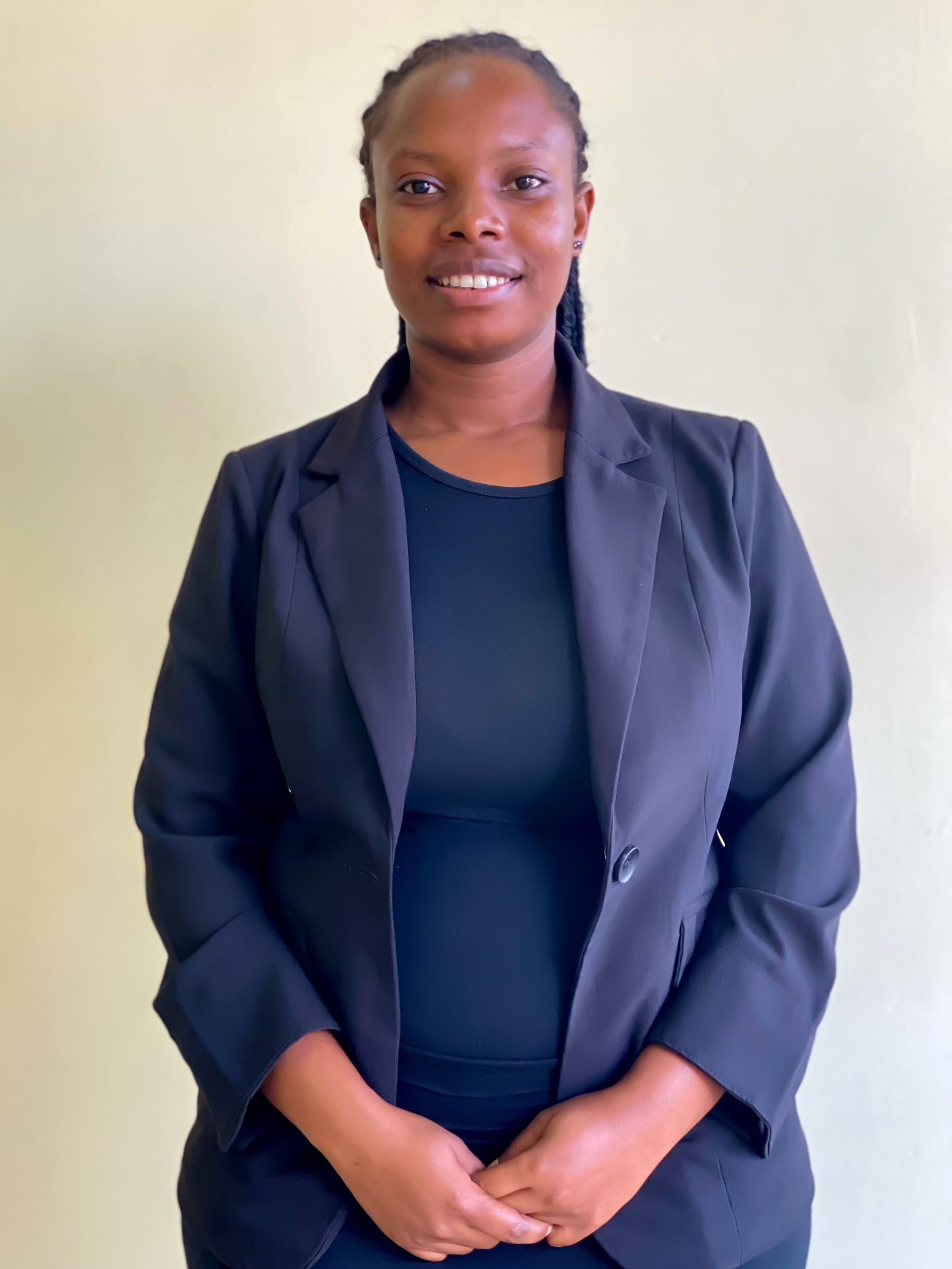
“This achievement reflects not only exceptional intellectual ability but also discipline, resilience, and sustained dedication to the highest standards over four years. Graduating with first-class honors is no small feat; it requires consistent outstanding performance.
“Her accomplishment sets a powerful example for continuing students and reaffirms our department’s commitment to nurturing excellence. We are confident she will make meaningful contributions to the communication profession and society at large,” says Dr. Nakiwala.
On graduation day, applause will crest and recede. The gowns will fold back into wardrobes. The transcripts will be filed away in cabinets. But something quieter will endure; a young woman from Nabbingo who once missed her Law mark, who spent 20 hours a week on the road, who discovered that storytelling is power, and who now walks into Freedom Square not by accident, but by intention.
Life, as she has come to understand it, lives on.
Humanities & Social Sciences
Dr. Pamela Khanakwa Honored for Steering Record 18 PhD Candidates for the Mak 2026 Graduation
Published
1 month agoon
January 23, 2026By
Jane Anyango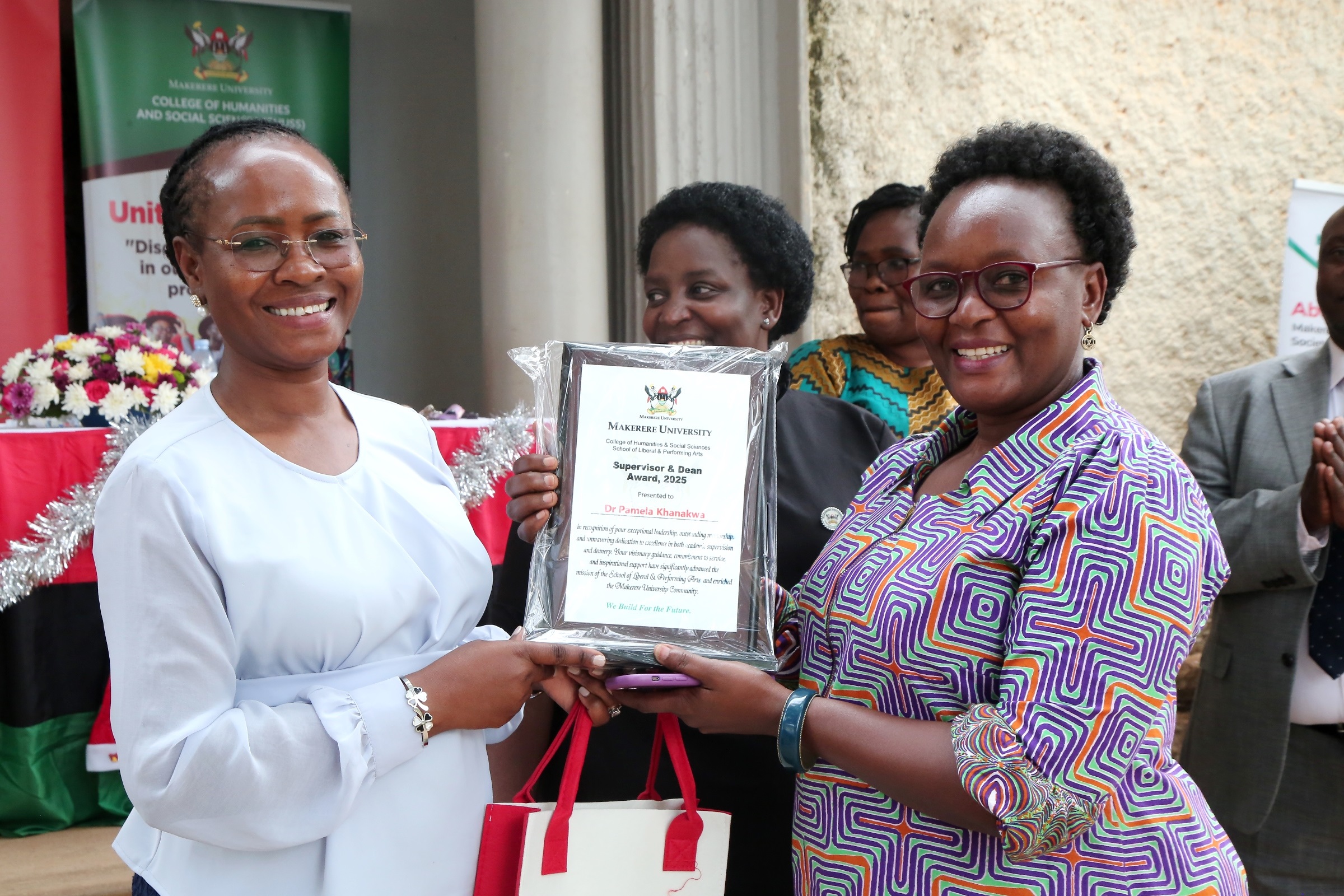
Six personally supervised, three completed in record time, as School of Liberal and Performing Arts sets a historic milestone. Dr. Pamela Khanakwa got the Award as Best PhD Supervisor and Dean
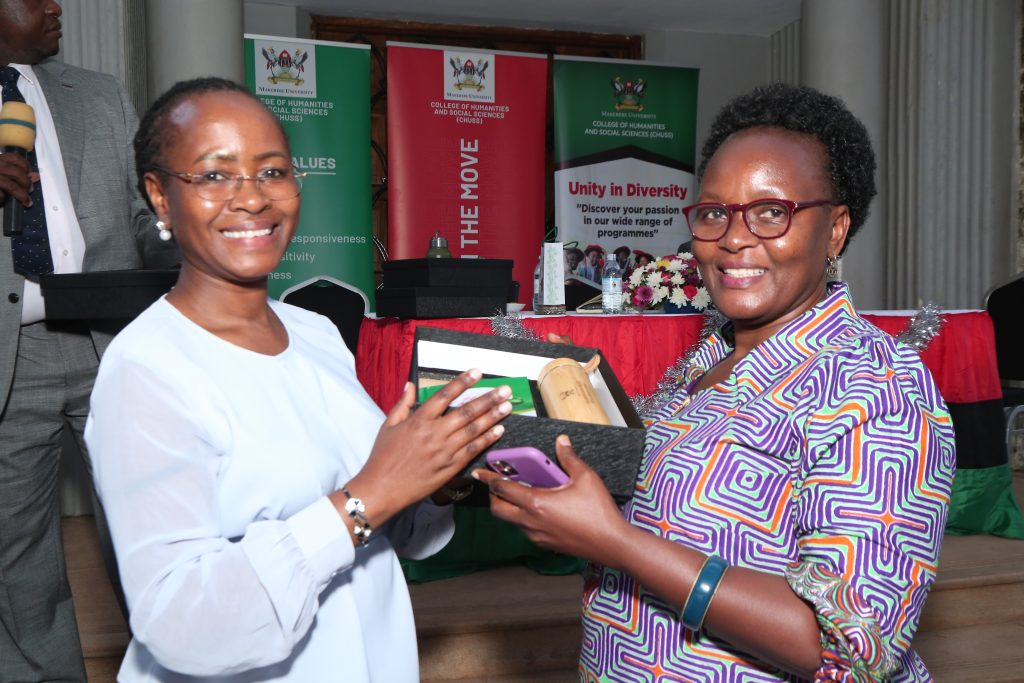
A Historic Academic Milestone for SLPA
The College of Humanities and Social Sciences (CHUSS) recognised the Dean of the School of Liberal and Performing Arts (SLPA), Dr. Pamela Khanakwa, for outstanding academic leadership that has seen the School field 18 PhD candidates for the next 2026 Makerere University Graduation Ceremony scheduled for 24th-27th February. Remarkably, six of these doctoral graduates were directly supervised by Dr. Khanakwa, with three completing within the official three-year timeframe, an exceptional achievement in graduate training. The recognition was announced during the CHUSS End-of-Year Get-Together, where staff applauded Dr. Khanakwa’s dedication, humility, and relentless commitment to postgraduate supervision and timely completion.
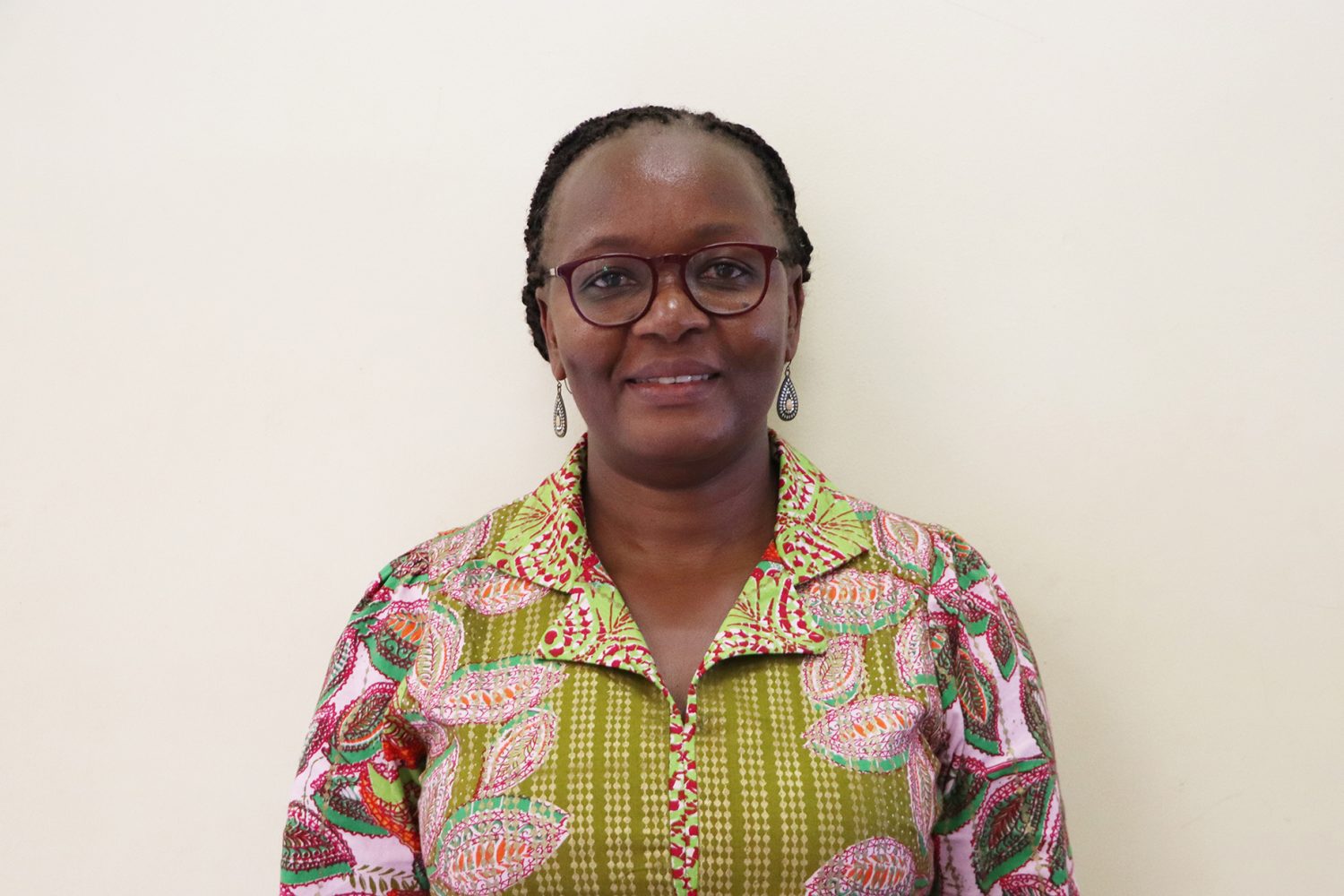
Message to Academic Staff
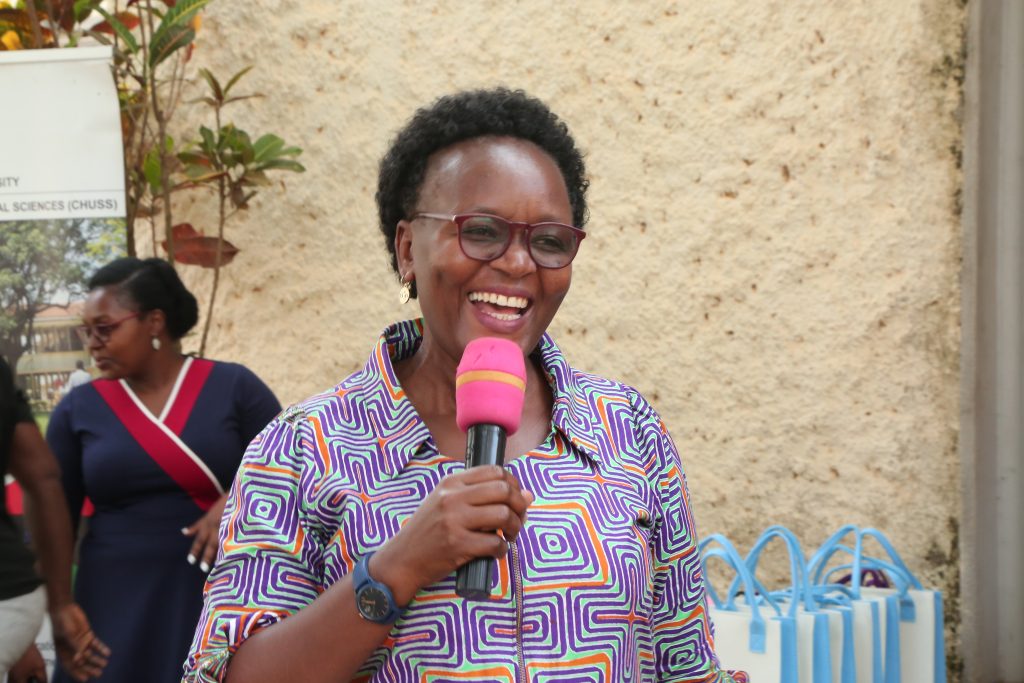
Q: What message do you have for your staff following this achievement?
Dr. Khanakwa:
First, I celebrate my staff and thank them for their dedication to supervision and student support. Academic work is demanding, and material rewards are often limited, but the true satisfaction comes from seeing students succeed.
I encourage my colleagues to remain committed. Yes, the workload is heavy, but many things are possible with dedication and teamwork. Let us continue working for the good of our students, our School, and Makerere University.
Leadership Rooted in Humility
Q: Many colleagues describe you as humble, down to earth, and hardworking. What shapes this character?
Dr. Khanakwa:
I think it is largely my upbringing. My mother was a primary school teacher from the 1950s until the mid-1980s. She worked extremely hard to raise us, combining teaching with farming to ensure we had school fees and basic needs. From her, I learned humility, discipline, and the value of hard work.
I also learned that leadership positions are temporary. You occupy them today, and tomorrow you move on. So humility is essential.
My graduate training also shaped me significantly. My PhD supervisor emphasized that graduate study is a full-time job and that results matter more than noise. Let people see your work through outcomes, not announcements.
Supervision as a Two-Way Commitment
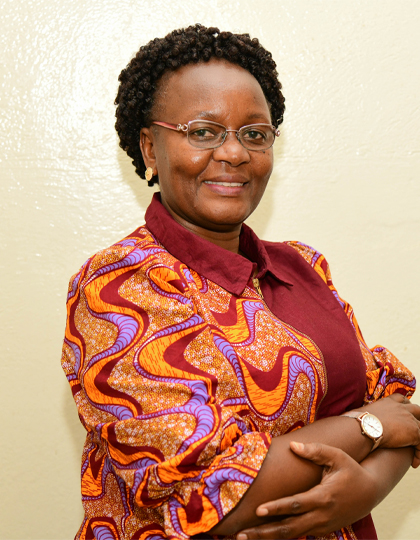
Q: How would you describe your supervision style?
Dr. Khanakwa:
I read my students’ work thoroughly, word by word. Sometimes my comments are tough, but they are honest. Supervision is a two-way commitment. I give feedback, but students must also respond and remain engaged. When that relationship works, progress happens.
Balancing Leadership, Scholarship, and Family
Q: How do you balance being a Dean, scholar, wife, mother, and daughter?
Dr. Khanakwa:
Honestly, I am not sure I balance perfectly. My mother lives far away in Bukwo, so visiting requires careful planning. My children grew up understanding the demands of academic life. I pursued my PhD in the United States and spent long periods away, but we adapted as a family.
Work has become part of my lifestyle. I use weekends to read dissertations, review manuscripts, and write. Sometimes my children ask if I ever sit without working, but this is the commitment I made. As we often say jokingly, “We humbly applied for the job, so let us do the job.”
Scholarship Beyond Supervision
Dr. Khanakwa is also an active scholar and editor. In the past year alone, she has:
- Edited scholarly volumes on archives, memory, method, and pedagogy
- Published a book with Routledge Companion
- Co-authored journal articles and book chapters with graduating students, including Priscah Asiimwe and Anatoli Lwasa Mpijja
“I feel an obligation to write with students,” she notes. “It takes time, energy, and commitment, but it is part of academic mentorship.”
Who Is Dr. Pamela Khanakwa?
Dr. Pamela Khanakwa is the Dean, School of Liberal and Performing Arts, College of Humanities and Social Sciences, Makerere University. She is a seasoned scholar, supervisor, administrator, and mentor whose leadership continues to redefine graduate training excellence. Details about Dr. Pamela Khanakwa can be accessed at: https://chuss.mak.ac.ug/en/personnel/pamela-khanakwa/
More details are available in her attached curriculum vitae.
The CHUSS End- Of-Year-Get-Together
On 12th December, 2025 the college leadership organised a get-together end of year gathering to take stock of the achievements, challenges and brainstorm together on how to move forward. The event was marked by entertainment, team building games, appreciation speeches, sharing a meal and a Christmas package for every staff
Retirees and staff recognised
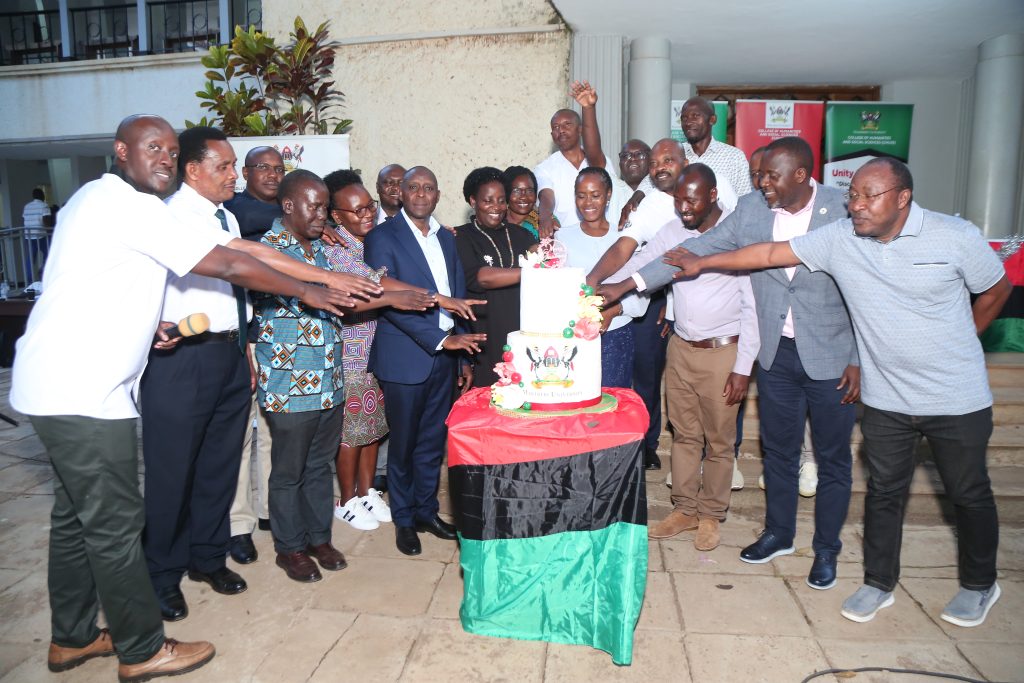
Five retired staff Dr. Micheal Wangotta Masakala, Dr. Anatole Kirigwajjo and Dr. Jackson Kizza Mukas (all from the School of Languages, Literature and Communication), Assoc. Prof. Florence Nansubuga (School of Psychology), Dr. Tusabe Gervase (School of Liberal and Perforing Arts) and Ms. Scovia Nganda Sekweyama (secretary from the School of Social Sciences) were recognised for their dedicated services to the university.
In addition to Dr. Pamela Khanakwa’s Award as Best PhD Supervisor and Dean, Ms. Birabwa Florence scooped the award of Best Registrar of the year. Birabwa is the registrar for the School of Liberal and Performing Arts.
Administrative and support staff including Ms. Mary Gyezaho and Annet Kashumbusha(both administrative secretaries in the Principals office), Farouq Lule (IT Officer), Godfrey Kakooza (cleaner), Charles Sebuguzi (driver) and Jane Anyango (Communications officer) were recognise with awards for outstanding service. Dr. Mohamed Mayanja Kajumba was from the School of Pyschology was recognised as the person with an outstanding talent in Handwriting.
The celebrations held in the Arts quadrangle were graced by the Vice Chancellor Academic Affairs Prof. Sarah Ssali and the Deputy Vice Chancellor in charge of Finance and Adminstration Prof. Ireeta Tumps.
Humanities & Social Sciences
Ugandan Journalists Trained on Peace and Gender-Sensitive Reporting Ahead of 2026 Elections
Published
2 months agoon
January 9, 2026By
Jane Anyango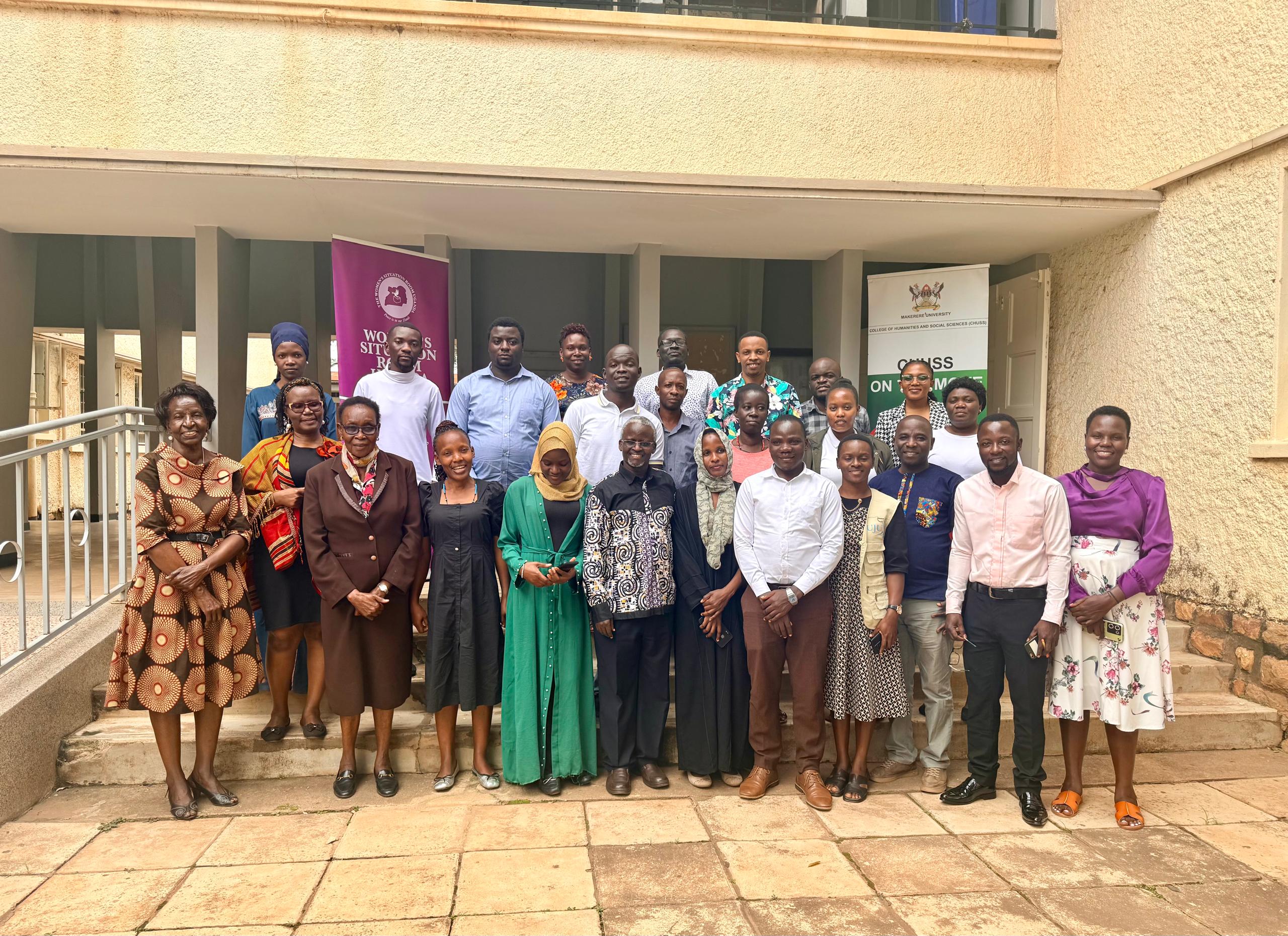
Kampala, Uganda – January 9, 2026
Ahead of the January 15 general elections, Ugandan journalists have undergone specialized training on peace and gender-sensitive reporting to ensure responsible media coverage during the election period. The two-day training, held from 8th to 9th January 2026 at Makerere University’s College of Humanities and Social Sciences Smart Room, was organized by the Women’s Situation Room (WSR) in partnership with various stakeholders and brought together journalists from across print, broadcast, and online platforms.
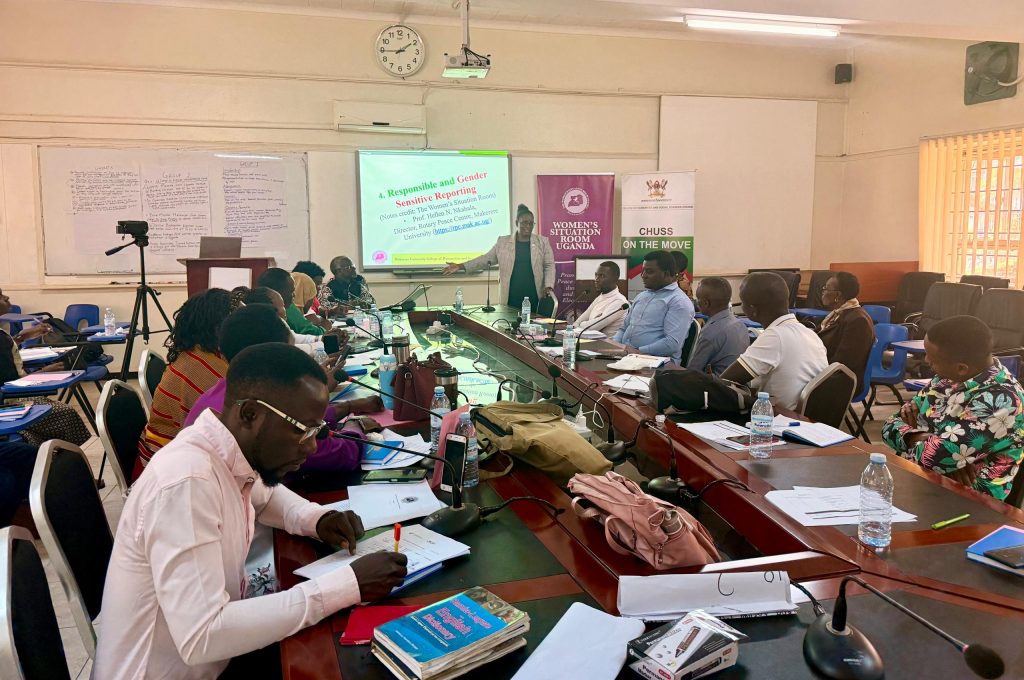
The main objective of the training was to strengthen the capacities of media in reporting and documenting electoral processes in a responsible and gender-sensitive manner. The specific objectives included: strengthening journalists’ skills to cover the 2026 elections in a fair, balanced, gender-sensitive, and non-violent partisan way; enhancing the role of media to enable citizens to be well-informed and actively participate in the election process; ensuring focused and balanced reporting on peace during and after elections; and strengthening partnerships between the WSR and media houses during the election period.
The training covered multiple critical modules. Day one focused on responsible conflict-sensitive reporting, emphasizing principles such as balance, impartiality, and accuracy. Participants explored the role of media as a relayer of the population’s voice, election monitor, catalyst for social cohesion and reconciliation, contributor to the accountability of political actors, and a platform for detecting and debunking digital media misinformation and hate speech.
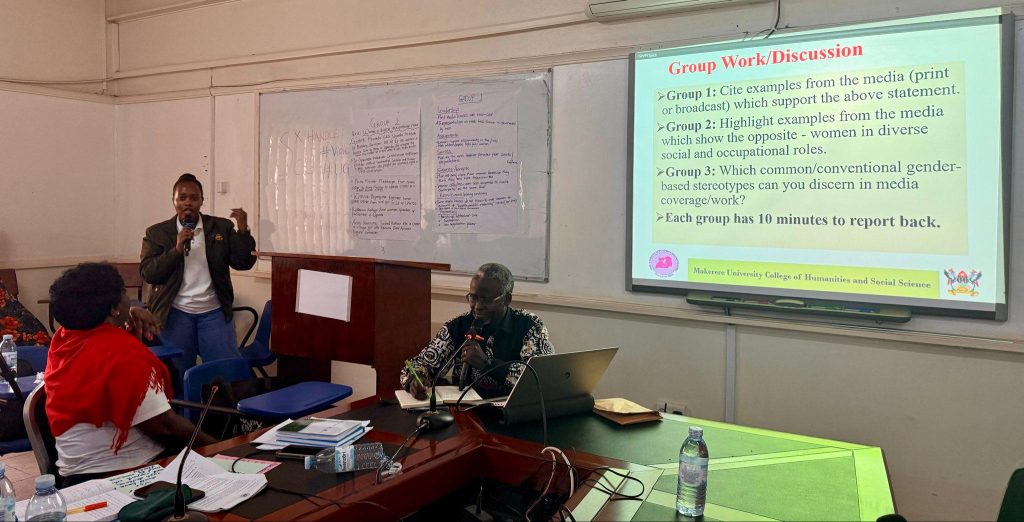
Day two addressed responsible and gender-sensitive reporting. Key aspects included the definition of gender-sensitive reporting, how to become a gender-sensitive reporter, critical elements in reporting with gender awareness, packaging gender-sensitive stories, and a checklist for detecting and avoiding gender-insensitive reporting.
Her Lordship, retired Judge Justice Mary Mayitum, emphasized the importance of peace as the foundation of development and democratic engagement. “Because we value peace more than anything. Without peace, really, you can do nothing. But where there is peace, you can have time to reflect, discuss with others, and join in meaningful dialogue,” she said. She warned that the country’s past conflicts, such as those in Gulu, underscored the necessity of maintaining national harmony.
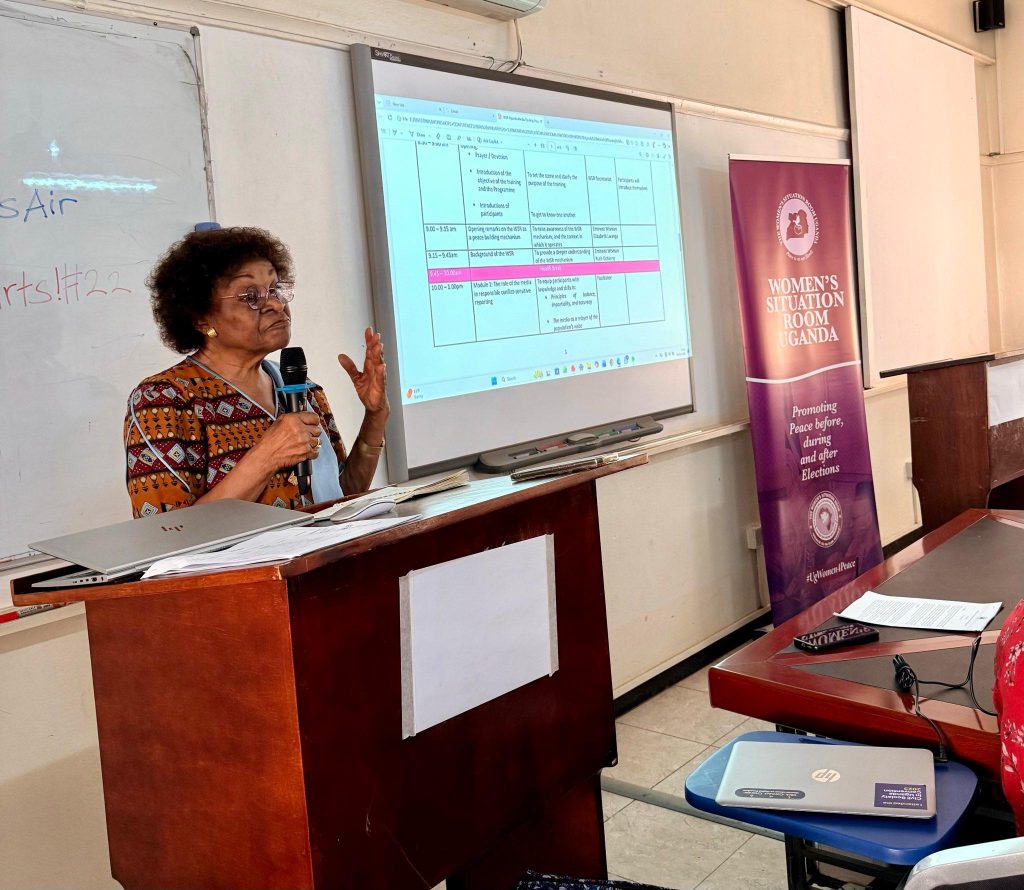
Justice Mayitum also urged other key election stakeholders to uphold peaceful conduct. “Being peaceful is the very heart of life. We have spoken to police, security personnel, political parties, and the Electoral Commission. We want politicians to have a code of conduct and to understand that it’s okay to think differently without fighting or hating one another,” she added.
Dr. William Tayebwa, lead facilitator and senior lecturer in the Department of Journalism and Communication at Makerere University, said, “This training is about conflict-sensitive reporting, peace journalism, and gender-sensitive reporting in the context of the elections. The emphasis was on giving female political candidates a voice while ensuring journalists report responsibly on election-related matters.”
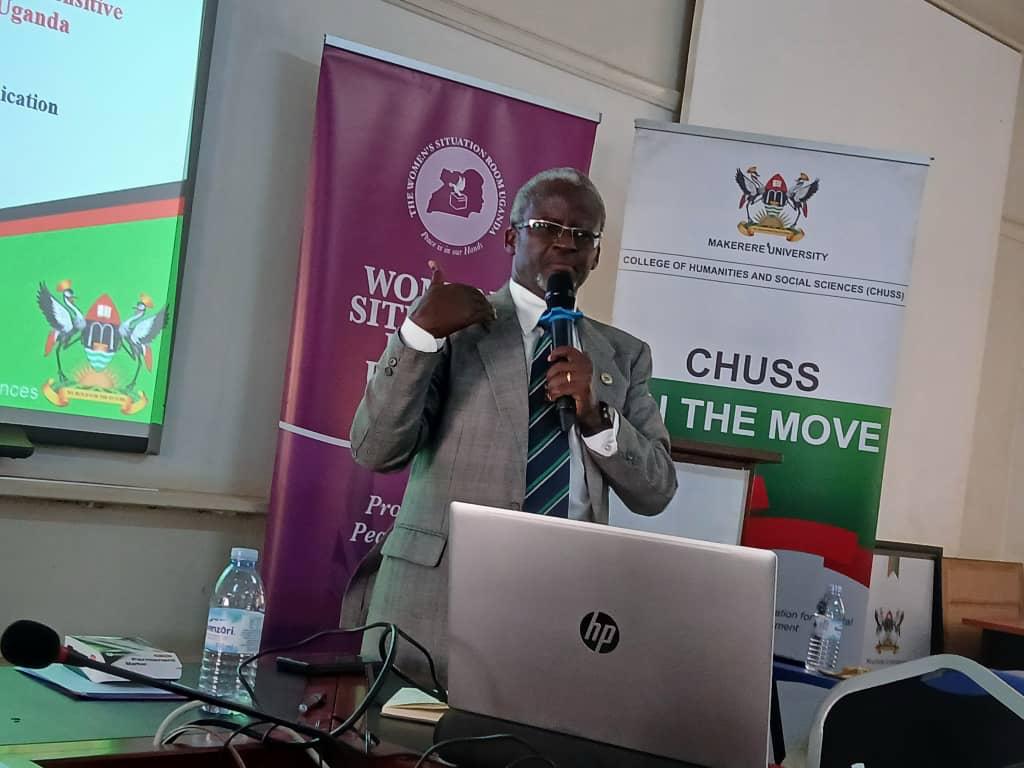
Participants described the training as timely and impactful. Tony Banizengabo of CBS Wakiso District said, “We’ve benefited a lot. We’ve been trained to write stories which bring peace, not conflict. Ahead of the elections, we are very ready to be part of peacemakers.”
Dorcas Kimono of UBC TV Kampala added, “It was so timely and rich. We learned how to report without promoting or fueling violence, giving voice to victims without angering them or encouraging violators. This is very vital, especially as we approach the 2026 elections.”
The training aims to equip media personnel with the knowledge and skills to uphold professional ethics while contributing to a peaceful, inclusive, and gender-sensitive electoral process.
Trending
-

 Humanities & Social Sciences6 days ago
Humanities & Social Sciences6 days agoMeet Najjuka Whitney, The Girl Who Missed Law and Found Her Voice
-

 General5 days ago
General5 days ago76th Graduation Highlights
-

 Health2 weeks ago
Health2 weeks agoUganda has until 2030 to end Open Defecation as Ntaro’s PhD Examines Kabale’s Progress
-

 Agriculture & Environment1 week ago
Agriculture & Environment1 week agoUganda Martyrs Namugongo Students Turn Organic Waste into Soap in an Innovative School Project on Sustainable Waste Management
-

 General2 weeks ago
General2 weeks agoMastercard Foundation Scholars embrace and honour their rich cultural diversity
